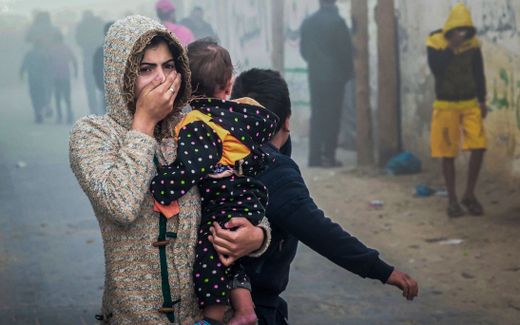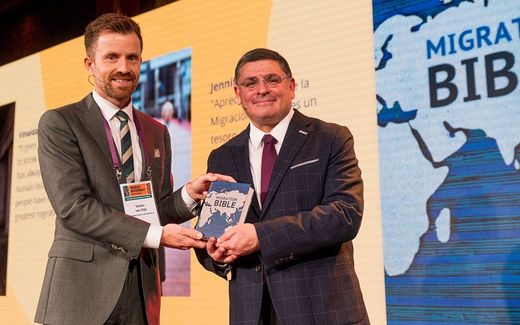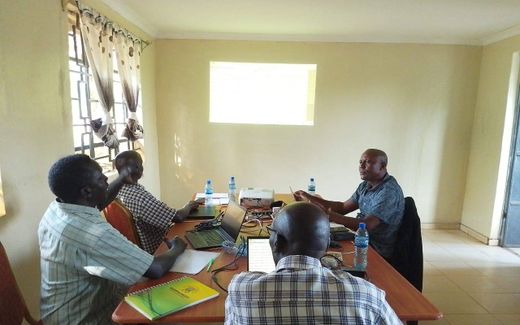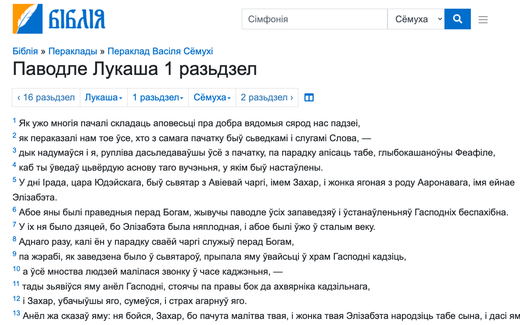Evert’s review: What does the Migration Bible add to my bookshelf with Bibles?
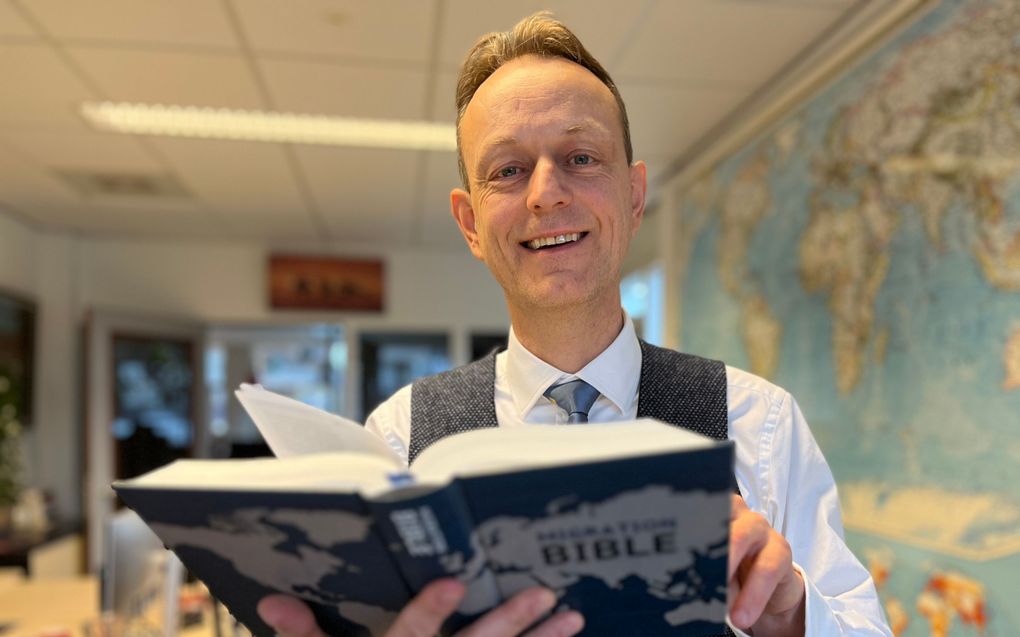
The Migration Bible has reading plans that focus on migration within the Bible itself. Photo CNE
Opinion
Jesus was a refugee, and all His disciples are on a long pilgrimage from the Garden of Eden to the New Jerusalem. On this journey, some of them can learn from the Migration Bible.
It is best to say it here at the beginning: I am a (little) bit sceptical towards target audience Bibles. Amid the many translations of the Bible, you can buy even more versions now: the Men’s or Women’s Bible, and of course, a Youth Bible (with jeans print cover).
In theory, this is endless. You can have an edition for archaeologists, green lovers, musicians, farmers, fishers and (who knows) hunters. Much of this is market-driven. As long as it sells, it’s okay. Or it is policy-driven. The idea is that you have to embrace the green views.
With this scepsis, I received the Migration Bible, sent to us for review by the Dutch-Flemish Bible Society.
But having said that, it is no secret that migration is a big issue nowadays in Europe and elsewhere. In towns and cities, churches have to deal with people from other countries and cultures. According to the introduction in this Bible edition, migration doubled in ten years to 103 million people in 2022.
And if this is a fact –not an opinion– then it is helpful to help people to understand what the Bible says about migration. Therefore, I promise to leave my scepsis here.
Many Biblical figures were migrants: Abraham, Joseph, Moses, Ruth & Naomi, and Daniel. “The Bible is a book of, for and by migrants”, the book says. And that is true.
What do these migrants experience? Some reading plans highlight parts of that. It can be challenging to live in another country, as Naomi knows. She was Elimelech’s widow, called “climate refugee” in the book; he went from Canaan to Moab. Naomi felt very lonely in the strange country. A culture clash can remind you that you are not in God’s kingdom yet. But going back to your country of origin can be “bittersweet” too, as Naomi experiences in Bethlehem.

The several reading plans have a particular subject. One is hospitality, a “core value” in God’s Word, according to the Migration Bible. The reading plan starts in Genesis 18, where Abraham sits in front of his tent and welcomes three guests. They speak about the blessing with a son. But they also announce a judgement over Sodom, the city without hospitality. From there, it goes to Moses in exile in Midian, Ruth on Boaz’s fields, David hiding in Moab (where his grandmother Ruth is from), Elijah staying with the widow in Zarepath, and Jesus’s escape to Egypt.
Hospitality is an act of love, also to neighbours with a different language and skin colour. Hospitality is also a mark of God Himself since He leaves us in His creation.
Other reading plans are “Coping with culture clash”, “Bridge Building”, and “Christians as foreigners”. Not all reading plans are unique eye-openers, but they are still helpful in showing examples of a specific topic in the Scripture.
The Migration Bible contains articles in which migrants tell their stories. Sometimes, it is marvellous, sometimes it is sad. It is clear from those articles that Christianity embraces all languages, races and cultures. A believer from the Philippines feels at home in a church in Europe quite soon. Essential, of course, is that this church is ready to receive a brother or sister from the Philippines. Usually, that is the case.
Travelling has risks as well. Since you are alone, you can show yourself differently from who you really are or take on another moral cloak. Daniel is a good example here. He was abducted and could have easily chosen the “new order”. But he kept his integrity and the beliefs that he learned in Judea.
In the end, we are all strangers, we find on page 1387. “Peter considers all Christians refugees, foreigners, strangers”, the book says. “God has called us out of darkness.” Of course, spiritually, this may be so. But in terms of culture and language, most people have a place where they feel at home.

Here, we might have a weak point of the Migration Bible. It stresses so much that alienation is a daily thing in the Bible that it forgets that it is a blessing if we have our place in our country of birth. Acts 17,26 says that all tribes and nations go back to “one human being” and live in “fixed” times and places (as quoted from the Good News Translation used in the Migration Bible).
From this text, having a sense of belonging in a certain nation is a blessing. But it seems that the Migration Bible is so busy stressing that everything is on the move that it forgets to say that most people prefer to stay with their own people without being xenophobic. It is one-sided there. Readers who have a particular patriotism will get suspicious here. They might think they are lured into a certain political interpretation. Also, I would love to know how a tribe or a nation fits in the Biblical message. Is that an outdated phenomenon, or is it also something for the current time?
For the rest, it has to be said that the Migration Bible contains no politics at all. It does not discuss asylum systems, border protection, or hot debates. Believers from the left and right can find perspectives here that help make decisions. And because of that, it indeed is enriching the bookshelf.
The Migration Bible can be bought online or purchased elsewhere for about 25 Euros.
Related Articles


